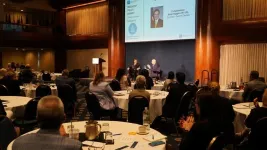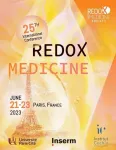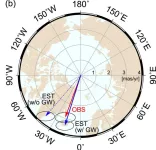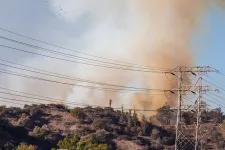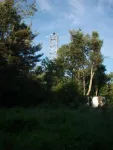NCCN Chief Executive Officer, Robert W. Carlson, MD, opened the event with a focus on equity.
“NCCN’s work is guided by the idea that where you live should not impact whether you live,” said Dr. Carlson. “NCCN Guidelines are one free resource to make sure everyone, everywhere, has access to cancer care based on the latest evidence and expert consensus. They can be used as guardrails to standardize treatment—preventing under or overtreatment—while still enabling freedom for personalized care.”
Advocates, providers, lawmakers, and others shared diverse perspectives on how location, policies, culture, and built environment can all impact cancer incidences and outcomes.
“Broadly, ‘built environment’ refers to all human-made surroundings, and includes various cancer-relevant factors, such as: reliable internet access; accessible high-quality cancer care and public transportation; level and continuous sidewalks; nearby parks and recreational facilities, nutritious foods, and tree-cover; clean air and water; and safe and supportive housing and neighborhoods,” explained panel member Jesse John Plascak, PhD, MPH, Assistant Professor, Division of Cancer Prevention & Control, The Ohio State University Comprehensive Cancer Center – James Cancer Hospital and Solove Research Institute. “Investing in improving the built environment translates to better health outcomes, including cancer.”
The program featured a fireside chat with Congressman Brian Higgins (NY-26), who shared an overview of the policy landscape and a look at how different regions can be better served.
“Early detection is our best protection against cancer of all types, but many Americans, especially those living in underserved communities, lack access to regular screenings which puts them at a greater risk,” said Congressman Higgins. “As Co-Chair of the Cancer Caucus in the U.S. House of Representatives, I am committed to advancing efforts that address equity in cancer care, improve access to routine screenings, and increase funding leading to breakthroughs and advancements in treatments. Together, we can reach the communities in greatest need and achieve the goals set forth by President Biden’s Cancer Moonshot to end cancer as we know it.”
Elisa Rodriguez, PhD, MS, Vice President & Associate Director of Diversity, Equity and Inclusion (DEI) at Roswell Park Comprehensive Cancer Center, provided the keynote address.
“Our nation’s cancer centers are uniquely positioned to address cancer health disparities and inequity in access to cancer services,” noted Dr. Rodriguez, who also serves as Director of the Community Engagement Resource for Roswell Park and is a Member of the NCCN DEI Directors Forum. “The populations and regions we serve are diverse in many ways—they are rural, urban, and suburban, and the people living in these distinct geographic regions reflect every dimension of humanity and need. Our experiences at Roswell Park can serve as a model for how cancer centers can enlist partners in their work to enhance infrastructure and develop effective strategies to address the cancer burden, increasing access to cancer care for all patients.”
There was a focus on the rural/urban divide throughout the summit, with speakers identifying how various regions can face very different challenges which require thoughtful solutions. They noted that cancer incidence rates tend to be higher in urban areas, but mortality rates are higher in rural communities. In urban areas, there may be more environmental and behavioral stressors contributing to cancer incidences, such as less access to safe places for physical activity or affordable fruits and vegetables. In rural areas, there are numerous barriers to accessing medical care providers—particularly specialists—including staffing shortages and transportation concerns.
“Access to innovative oncology treatments and clinical trials for patients—regardless of where they live—has long been a challenge in oncology and clinical development,” said Sara Kulwicki, MS, Associate Vice President, Clinical Development-Oncology Clinical Design, Delivery & Analytics, Lilly. “In addition to barriers that exist for all patients, those in rural areas face increased obstacles to receiving optimal care. We must continue educating, advocating, and deploying solutions that remove financial, transportation, and other barriers, bringing care closer to patients.”
“A substantial number of rural patients often prefer or need to receive cancer care locally, yet many community hospitals are too under-resourced to offer the continuum of comprehensive and supportive cancer services included in evidence-based standards of care,” agreed Mary Charlton, PhD, Associate Professor, Department of Epidemiology, The University of Iowa, and Director Iowa Cancer Registry. “In order to provide quality care across varying locales, we must develop a multi-faceted, collaborative cancer network approach that extends the resources and expertise from larger cancer centers out to rural hospitals and providers. This must be done in a way that capitalizes on everyone’s strengths while fostering trust and engagement between providers. This strategy has worked well in states like Kentucky and Kansas, and our research aims to develop a rigorous implementation strategy to adapt these network approaches throughout rural America.”
The speakers offered many insights on leveraging technology to serve more patients. They acknowledged the massive expansion in telehealth was one positive thing to come from the Covid-19 pandemic. However, panel members pointed out that there is still more work to be done to harness technology effectively and equitably. Speakers also spotlighted how interpersonal interactions play an outsized role in finding solutions for the many challenges that prevent rural patients from getting high-quality care.
"The key to delivering specialized cancer care to rural patients is to make that care accessible through a multifaceted approach, collaborating with community oncologists and primary care providers with bidirectional trust and communication," commented Ursa Brown-Glaberman, MD, Associate Professor, Hematology/Oncology, Medical Director, Clinical Research Office, University of New Mexico Cancer Comprehensive (UNM CCC).
“While issues of policy, technology and geography are important, we can’t forget that a community’s culture must be considered and understood when working to increase access to cancer screenings and treatments,” agreed Keith Argenbright, MD, Director, Moncrief Cancer Institute, UT Southwestern Harold C. Simmons Comprehensive Cancer Center. “We must always keep in mind the cultural differences that make our targeted populations unique and work to create policies and partnerships that are embraced by those communities.”
Alma McCormick, BS in Health and Human Performance, Health and Wellness, Executive Director, Messengers for Health, Crow Nation, and Member, PCORI Advisory Panel on Patient Engagement, shared stories of successful community-based participatory research addressing the cancer needs among Crow Indian people. She had a suggestion for one way to gain trust in marginalized communities: “Do what you say you are going to do.”
She continued: “Go to where the people are and let them know you care.”
International radiation oncology head and neck expert Waleed Mourad, MD, Professor of Radiation Oncology, Medical Director, Morehead Cancer Center at The University of Kentucky is doing exactly that on a global scale. Dr Mourad is both the Radiation Oncology physician founder of sub-Saharan Cameroon Oncology Cancer Center and the current medical director of an academic rural practice in Appalachia. He discussed the A to Z challenges of ground up establishment of a cancer treatment facility as well as ongoing challenges in prevention, screening, diagnosis, treatment, and surveillance in both settings..
“Working toward the World Cancer Day goal to ‘Close the Care Gap’ takes a village,” said Dr. Mourad. “With the increased globalization of society, we are all citizens of the world. I cannot underscore enough how important it is to address and mitigate care gaps by delivering culturally-appropriate, team-oriented, competent care.”
Panelists Mei Wa Kwong, JD, Executive Director, Center for Connected Health Policy; Janette Merrill, MS Ed, Senior Director of Policy Programs, American Society of Clinical Oncology (ASCO); and Joette Walters, MSN, MBA, RN, Chief Executive Officer, Tuba City Regional Health Care Corporation, Navajo Nation, also made key contributions to the program. The panel discussions were moderated by Clifford Goodman, PhD, and closing remarks were provided by NCCN Chief Operating Officer Gary Weyhmuller, MBA, SPHR.
The next NCCN policy summit is coming up on September 12, 2023, with a focus on measuring and addressing health-related social needs in cancer. The event will include the launch of a high-impact screening tool to help health care providers meet patient needs and provide better care. Visit NCCN.org/summits to learn more and register.
# # #
About the National Comprehensive Cancer Network
The National Comprehensive Cancer Network® (NCCN®) is a not-for-profit alliance of leading cancer centers devoted to patient care, research, and education. NCCN is dedicated to improving and facilitating quality, effective, equitable, and accessible cancer care so all patients can live better lives. The NCCN Clinical Practice Guidelines in Oncology (NCCN Guidelines®) provide transparent, evidence-based, expert consensus recommendations for cancer treatment, prevention, and supportive services; they are the recognized standard for clinical direction and policy in cancer management and the most thorough and frequently-updated clinical practice guidelines available in any area of medicine. The NCCN Guidelines for Patients® provide expert cancer treatment information to inform and empower patients and caregivers, through support from the NCCN Foundation®. NCCN also advances continuing education, global initiatives, policy, and research collaboration and publication in oncology. Visit NCCN.org for more information.
END
